Cannabis is providing farmers with a new crop to farm. New cannabis jobs are emerging. Tourism is growing. And the economic benefits of legalizing cannabis are emerging.
Cannabis legalization is helping to restore middle-class jobs. It’s bringing more growth to local economies in need, like Snowflake, AZ (1). And even locations that are not necessarily in need, will soon see the economic benefits of legalizing cannabis. (With recent New York legalization, many struggling upstate New York communities stand to benefit economically.)
Globalization is the connection between different parts of the world. As countries, organizations, and businesses begin operating internationally, globalization spreads, and every part of humanity is affected. Values, goods, and ideas are shared and adopted. It’s been happening since the beginning of civilization – ever since humans started trading on the Silk Road (2).
There are so many benefits of globalization – it’s been shown to improve the standard of living in developing countries (3). But, it can have a negative impact on local, rural economies – and local employees – in the United States. As globalization continues, some rural towns have been left behind.
Why globalization tends to negatively impact small, rural towns
As international business increases, products are more accessible for cheaper. And local farmers are forced to sell their products for less. So for farmers who are already living a modest lifestyle, this can have a strong negative impact.
For example, during the U.S. recession of 2001-2002, ranchers in Brady, Texas fell victim to their competition in New Zealand and Argentina. These ranchers who once had thriving businesses raising goats for angora wool suddenly did not. Businesses stopped buying wool from the Texas ranchers. And then outsourced to New Zealand and Argentina because of the lower prices (4).

Local goat farmers and employees were out of work. But not only that… these goat farmers experienced a drastic cultural change as well. Raising goats is what many Brady, Texas farmers had done their whole lives. Employees who had a steady full-time job washing goat wool, now had a 3-day per week part-time job, with few other job opportunities in such a rural town.
This is just one example of the negative effects of globalization on small businesses… Globalization also impacts the culture, politics, and environment of local rural communities.
Its negative impacts affect both the rural community as a whole and the individual members. Business declines. Population declines. Policies change. And even culture changes. With a change or loss of local culture, can come the loss of identity, exclusion, and conflict… leading to a rise in depression (5).
But the cannabis industry is helping to keep jobs local. And giving hope to rural communities that have had to succumb to globalization. Cannabis is providing farmers with a new crop to farm. New cannabis jobs are emerging. Tourism is growing. And the economic benefits of legalizing cannabis are emerging.
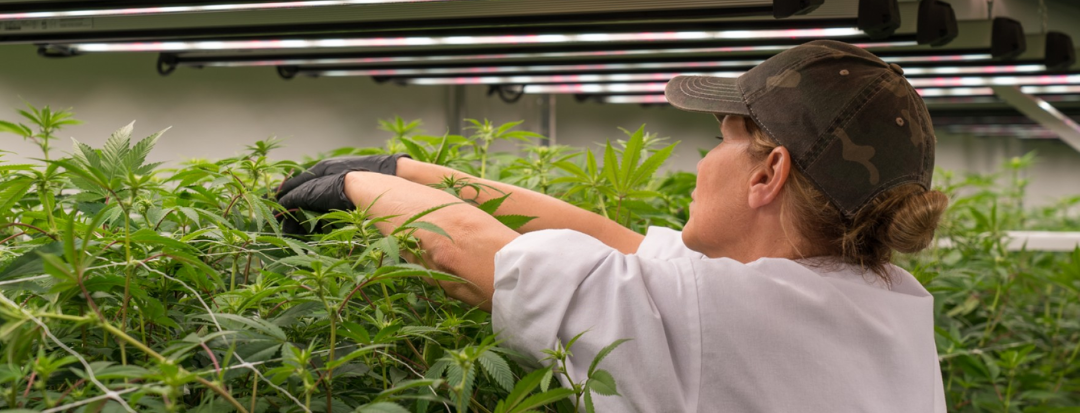
Use FlowerHire X’s Virtual Talent Management Platform to intelligently match your company with candidates seeking a career in cannabis
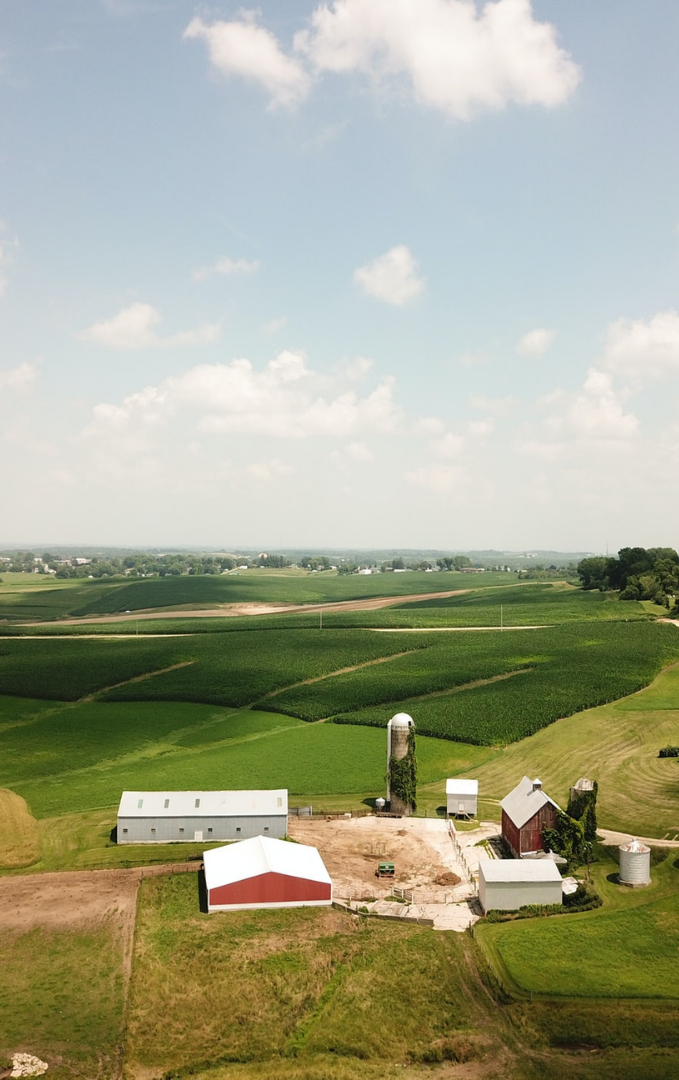
Economic benefits of legalizing cannabis in small, rural towns
A few of the economic benefits of legalizing cannabis are increased tax revenue, more jobs, and increased tourism.
Tax revenue
Both medical-only and adult-use states are bringing in a lot of tax revenue from cannabis sales. In 2020, Colorado brought in $350 million in tax revenue from cannabis sales. And Oklahoma brought in about $71.6 million in tax revenue.
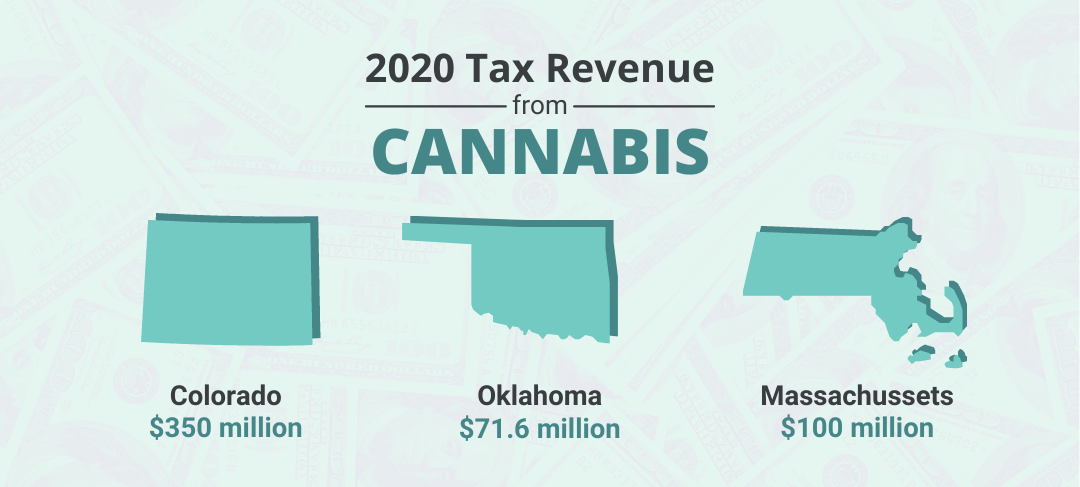
Dispensaries, cultivation facilities, and cannabis product companies all create revenue for states and cities. This additional tax revenue supports the community and infrastructure of these towns. In turn, making them more attractive places to live.
Job creation
As cannabis companies establish themselves in rural areas, there are increasing opportunities for a variety of employment opportunities, at respectable wages.
Dispensaries, cultivation facilities, manufacturing facilities, and cannabis product companies are bringing a selection of jobs to rural areas. Resistants who were previously forced to either take low-paying jobs, commute long distances, or uproot their families for better opportunities, now have the option to work in:
- Retail
- Management
- Farming
- Packaging
- Manufacturing
- Cultivation
- And more
And these cannabis employees can have the peace of mind that their cannabis jobs will be around for a while. Because, as FlowerHire CEO David Belsky mentions in a NY Times article, “Unlike other more mature industries, you can’t move manufacturing and agriculture jobs out of state. Without enough biomass to turn into consumer packaged goods, there’s nothing to fill the shelves of retailers and fulfill the demands of customers” (1).
Tourism
Towns that legalize cannabis often see an increase in tourism. Take a look at Sedgwick, Colorado as an example…

Sedgwick’s population was already small and saw its population decline to only 150 people. It was turning into a ghost town in despair. To the point that residents were considering unincorporating their town (6). But then, the town decided to open a dispensary. The dispensary changed their fate.
Suddenly, the town had enough out-of-state traffic to not only support the small economy… but improve it (7). A 420-friendly bed and breakfast went into a building that was once neglected. And there was enough tax revenue from the dispensary sales to pay for new street signs – something the town had not experienced in a while.
Small towns experiencing the economic benefits of legalizing cannabis
Snowflake, Arizona
The residents of Snowflake, Arizona – a Latter-day Saints religious community – were on the fence about whether to allow Copperstate Farms – cannabis wholesaler – to open in their religious town.
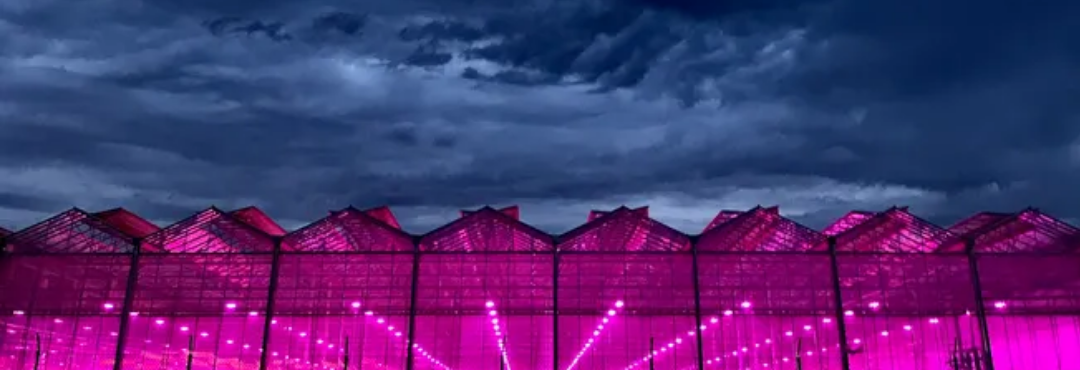
The town had already suffered from the closing of a paper mill in 2012, which put 308 employees out of work (8). And then the closing of a large tomato farm in 2015, which put 60 employees out of work (9).
In desperate need of jobs and an economic boost, the town voted to allow Copperstate State farms in. Now, Snowflake is experiencing the economic benefits of legalizing cannabis (1). Copperstate Farms is:
- The largest employer in Snowflake, employing over 400 employees.
- Renowned for having the largest cannabis greenhouse in the United States
And, recently, they announced they’re doubling their production blueprint (15).
Barry, Illinois
Barry, Illinois, is home to about 1,500 people and Ascend Wellness Holdings’ cultivation facility. Recently, the facility has been expanding to keep up with the demand for cannabis in Illinois. This means more cannabis jobs for more people.
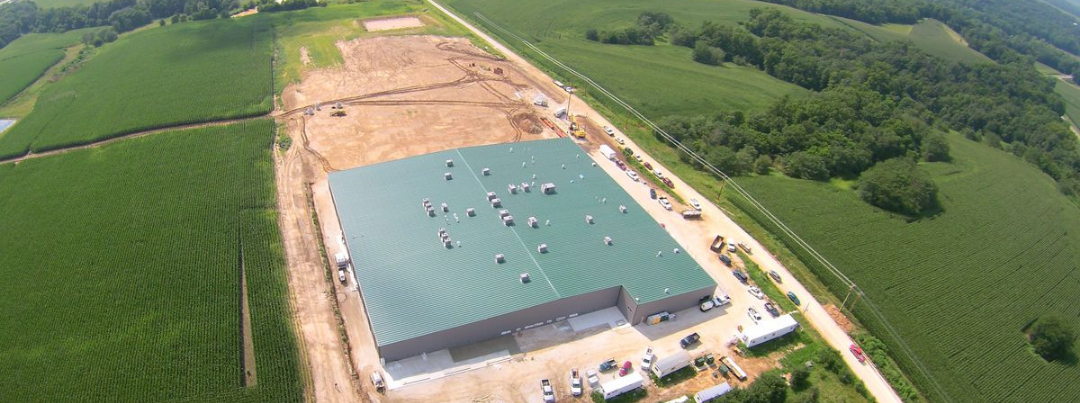
In December 2019, the cannabis cultivation center employed 106 people (10). Then added about 25-30 people during 2020. And they’re continuing to see the economic benefits of legalizing cannabis as recreational cannabis continues to be in high demand.
Scranton, Pennsylvania
Cannabis sales continue rapidly rising in Pennsylvania. And PA is preparing for when the state becomes recreational, which will likely triple the market. So in November 2020, Jushi Holdings announced that it wants to double the size of its Scranton facility (11).

The first phase of expansion is expected to be ready soon, by mid-2021. The expansion is expected to create about 100 new job positions. Jushi’s CEO Jim Cacioppo says in a press release that Jushi, “looks forward to bringing additional new local jobs and tax dollars to the region. And further investing in Scranton’s economy and community” (12).
Shamokin Dam, Pennsylvania
In October 2020, INSA proposed an expansion to its medical cannabis facility, in Shamokin Dam, PA, only less than one year after opening. The expansion plan is to triple the existing square footage and employ 50 to 75 employees by late summer in 2021 (13).
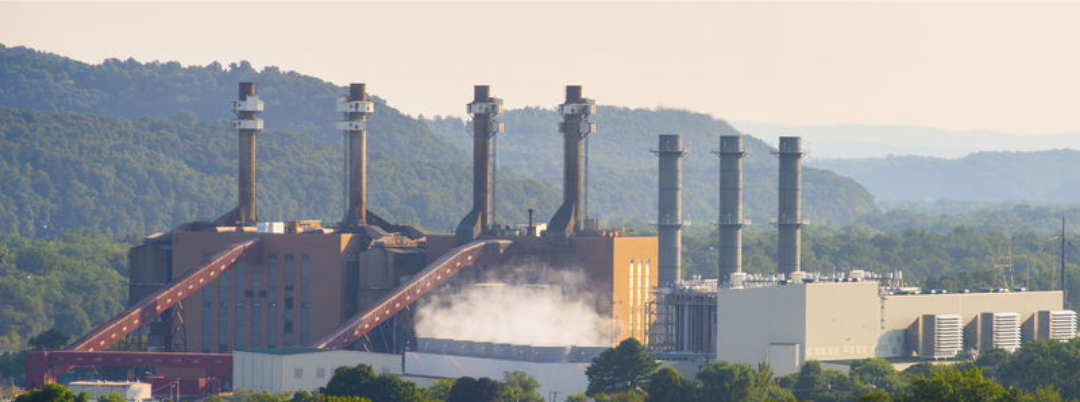
With a population of only 1,919, Shamokin Dam, Pennsylvania can expect to reap the economic benefits of legalizing cannabis.
Lincoln, Illinois
Lincoln, Illinois’ population of fewer than 14,000 people has been on the decline. And there have been a decreasing number of job opportunities. But with the rising demand for cannabis in Illinois, Cresco Labs chose Lincoln, Illinois as the town to set up Illinois’ largest cannabis facility (14). Lincoln can expect to see continued growth and job opportunities.
Use FlowerHire X’s Virtual Talent Management Platform to intelligently match your company with candidates seeking a career in cannabis
The economic benefits of legalizing cannabis will continue expanding as legalization continues.
Keep your eye out for new cannabis cultivation facilities and expansions in small, rural towns.
And whether you’re looking for a cannabis job or a cannabis business looking to hire hourly employees… check out FlowerHire X.
FlowerHire X, our virtual talent management platform, matches skilled candidates with their ideal cannabis job.
And, as always, reach out to FlowerHire’s expert cannabis recruiters. Our recruiters specialize in finding talented cannabis job candidates. Candidates who fit a company’s desired skill set and company culture.
Resources:
- https://www.nytimes.com/2021/05/05/style/arizona-cannabis-snowflake.html
- https://www.history.com/topics/ancient-middle-east/silk-road
- https://www.nationalgeographic.org/article/effects-economic-globalization/9th-grade/
- https://www.nytimes.com/2002/02/16/us/global-economy-taking-toll-on-small-towns.html
- http://www.unesco.org/new/en/culture/themes/culture-and-development/the-future-we-want-the-role-of-culture/globalization-and-culture/
- https://www.neighborhoods.com/blog/what-is-an-unincorporated-area
- https://www.businessinsider.com/small-towns-saved-by-legal-marijuana-2017-5#adelanto-california-struggled-to-recover-when-its-largest-employer-an-air-force-base-left-town-legal-marijuana-gave-respectable-jobs-to-people-2
- https://www.catalystpaper.com/media/news/community/catalyst-permanently-close-snowflake-recycle-paper-mill
- https://www.wmicentral.com/news_premium/snowflake-tomato-plant-to-close/article_dee215fc-5db0-11e5-ae26-3769d6ffe8c5.html
- https://www.sj-r.com/news/20191214/ascend-illinois-cultivation-center-gears-up-for-recreational-pot-sales
- https://www.inquirer.com/business/weed/medical-marijuana-pennsylvania-demand-rockets-jushi-holdings-expands-scranton-cultivation-20201123.html
- https://www.cannabisbusinesstimes.com/article/jushi-holdings-expansion-pennsylvania-cultivation-facility/
- https://www.dailyitem.com/news/snyder_county/marijuana-growing-company-to-expand-shamokin-dam-plant/article_ff842c51-3c49-5da8-805e-eb4aef32b40b.html
- https://www.businesswire.com/news/home/20200416005232/en/Cresco-Labs-Completes-Expansion-of-Illinois%E2%80%99-Largest-Cannabis-Cultivation-Facility-in-Lincoln
- https://www.globenewswire.com/en/news-release/2021/03/04/2187364/0/en/Copperstate-Farms-Announces-Plans-to-Expand-Cannabis-Cultivation-to-80-Acres-Under-Glass-in-Snowflake-Arizona.html



